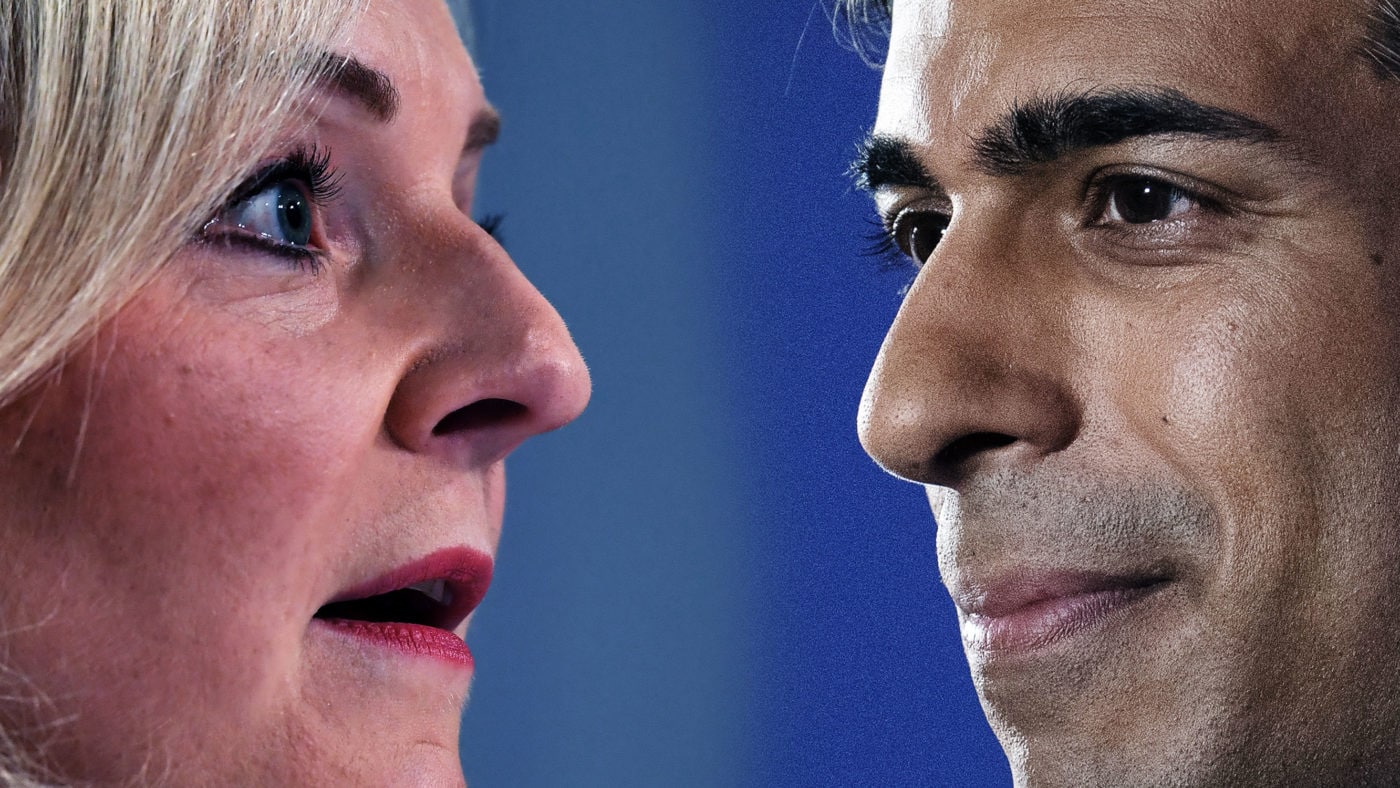As the Conservative Party’s leadership race moves from a succession of MP ballots to the membership voting, a major talking point has been the potential damage to the Tory brand of the contest itself. Are the ‘blue on blue’ rows really undermining the party, or are they just another distraction from the real issues of the day?
Intuitively, this sounds extremely straightforward. Voters dislike divided parties, and intraparty elections shift the focus onto what divides candidates, and the factions of a party that they represent, rather than what unites them. You would think that leadership contests would be electorally damaging. But the reality isn’t so simple.
Looking at the 13 leadership elections for the two main parties over the past 30 years, the party in question actually gained at least a point in the polls during the campaign on seven occasions, according to Britpol data. On four occasions, the party’s support was within a point either way of where it started.
On only two occasions did the support of the party electing a new leader fall by more than a point. These were the Conservatives in 2001 and Labour in 2020 – and the second of these can probably be attributed to the rally-round-the flag effect from the start of the pandemic.
The small number of precedents from recent history make it difficult to draw reliable conclusions about how different types of contest may affect the public reaction, but they do provide some clues.
Firstly, there wasn’t much difference between Conservative and Labour leadership elections. In both cases, the median outcome was that the party gained around a point compared with the start.
Nor was there much difference between electing a leader by ballots of MPs only, and (typically longer) races decided by ballots of party members (those being all Labour leadership elections during the period, besides Gordon Brown’s coronation by Labour MPs in 2007, and three of the seven Conservative leadership elections).
Being elected unopposed (as Michael Howard was for the Tories in 2005, along with Brown) does seem to make a difference, with the party gaining about 4 points, although note that these are the only two such examples in the dataset.
Changing leader in mid term actually saw a bigger gain (about 2 points). This was about half a point bigger still when the party was already already in government and so was choosing a Prime Minister, rather than leader of the opposition (Brown, John Major in 1995, Theresa May in 2016 and Boris Johnson in 2019).
Why would support for a party go up?
The reason is likely to be a classic of the ‘correlation is not causation’ genre – namely that parties usually have leadership elections either after losing a general election, or while polling badly. In fact in only two of the 13 cases (2016 when David Cameron resigned after losing the EU referendum, and 1994 when John Smith died) was the party in question ahead in the polls at the time.
That doesn’t mean we can rule out any negative effect from parties airing their dirty laundry in public. It’s just that, on average, it’s smaller than the boost from recovering a weak polling position. Of course, none of this means that Rishi Sunak and Liz Truss can go back to tearing lumps out of each other without having to worry about the consequences.
There are some signs in the data that division matters during leadership elections specifically – where a party removed (Conservatives in 2003) or attempted to remove (Labour in 2016) a leader via a challenge or a no-confidence vote, there was no gain in the polls during the contest. Incidentally, this holds if we include John Redwood’s ‘invited’ challenge to John Major in 1995.
Boris Johnson’s departure technically doesn’t fit with these, as he won his party no confidence vote last month. But he did so quite narrowly, and the public certainly see the Conservatives as divided, so the consequences may be similar.
That said, perceptions of division may change if the party comes together (or at least convinces the public it’s doing so) afterwards. So it’s probably more relevant to ask whether the infighting will have lasting damage.
Clips of candidates trashing their own government’s record in debates may end up being used in attack ads and, and quotes may end up on leaflets. But swing voters can be cynical about things which – for all they know – could have been taken out of contest, even if they weren’t.
So while there are clearly risks to the Conservatives that shouldn’t be dismissed, they shouldn’t be over-egged either. A lot of commentary seems to suggest an unjustified level of confidence around expectations of how things will look two years from now – or even two months.
But if the last few years in British politics has proven anything, it’s that counting your chickens before they are hatched is a fool’s errand.
Click here to subscribe to our daily briefing – the best pieces from CapX and across the web.
CapX depends on the generosity of its readers. If you value what we do, please consider making a donation.


